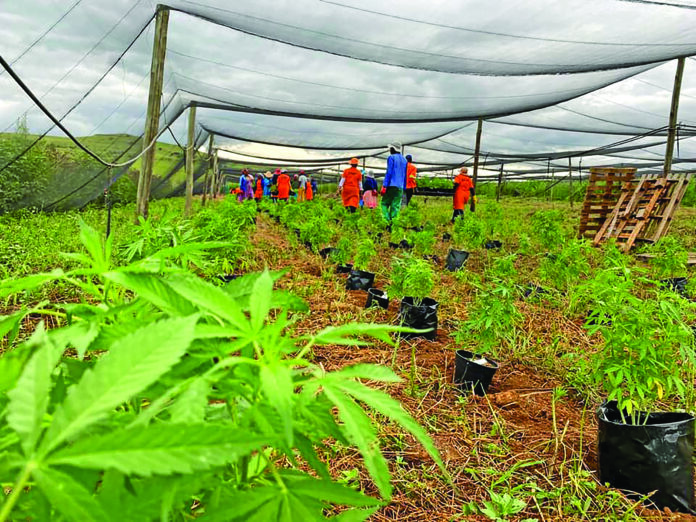A global medical cannabis entrepreneur looking to enter new markets says South Africa stands to lose out on the opportunities that lie in the commercial dagga market that is rapidly growing.
Kristian Usic, the CEO of Green Leaves Biomed, based in London, UK, likened South Africa’s recent move to legalise personal cannabis use to “giving everyone a free sample at a chocolate factory but forgetting to open the store”.
The Sunday World first spoke to Usic, a Croatian businessman, in Cape Town earlier this year, while he was conducting research with his team on the viability of doing business with some of the country’s high-end cannabis facilities.
The team’s visit coincided with the recent general election campaigns, where a day before South Africa’s watershed ballot, President Cyril Ramaphosa signed the Cannabis for Private Purposes Act into law.
The act makes South Africa the only country in the world to legalise the use of marijuana.
Commercial market
When asked about his impressions of Ramaphosa’s move and the new law, Usic said: “Sure, it’s a step in the right direction, but the real opportunity lies in the commercial market.
“Think medical and industrial cannabis — the kind that can drive economic growth, create jobs, and put South Africa on the map as a cannabis powerhouse.
“Without clear regulations for commercial production, we might miss out on this bigger picture and end up as spectators in the global green gold rush.”
Usic said he started his company with a group of international investors “who believe in the future of medical cannabis and the global impact it will eventually have on the quality of life of those who find relief in a variety of accessible products”.
According to the company’s website, Green Leaves Biomed is a private and exclusive platform designed to connect buyers with a comprehensive array of cannabis products.
“To access this cutting-edge resource, buyers need to go through a simple registration process on the Green Leaves Biomed website.
“Once authorised, they gain entry to a world of cannabis commodities at their fingertips,” it reads.
Tortoise in a race of hares
The Sunday World has previously spoken to owners of high-end cannabis cultivation and processing facilities in Gauteng, who complained about a lack of clarity in the regulations guiding the medical cannabis sector, which led them to incur massive losses and some shut down due to a lack of trade.
Usic said he knew of the same medical cannabis facilities and said he and his team were impressed at their potential on a global scale.
“Several changes in global cannabis regulations could be game-changers for South African producers,” said Usic.
“Harmonising standards internationally would be like having everyone finally agree on the rules of the game, making compliance easier and cheaper.
“Trade agreements could open doors that are currently locked, and increased support for research and development could lead to innovations that put South Africa at the forefront of the industry.”
He added that with countries like Canada and some US states fully embracing the green gold rush, South Africa risked becoming “the tortoise in a race of hares”.
“These early movers have set up robust legal frameworks, captured market share, and left everyone else playing catch-up.
“To avoid falling behind, South Africa needs to move swiftly, create supportive policies, and invest in research and development. It’s time to get off the starting blocks and join the race.”
Decriminalisation versus legalisation
The Croatian national said the South African legalisation laws were technically dealing with decriminalising personal use when the country should be looking at the bigger picture.
“Decriminalisation means you won’t get thrown in the slammer for having a joint, but it’s still technically illegal.
“Legalisation, on the other hand, sets up a legal market for production and sale, complete with regulations and taxes.
“Think of decriminalisation as turning a blind eye and legalisation as rolling out the red carpet.
“For the medical cannabis trade, legalisation is where the action is — allowing for a regulated supply chain that ensures quality and opens up commercial opportunities.”



